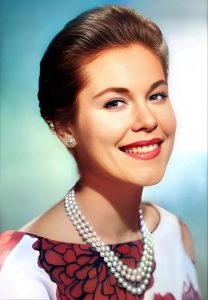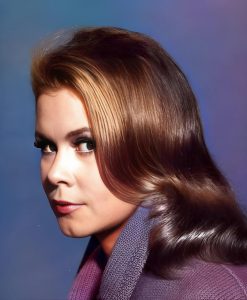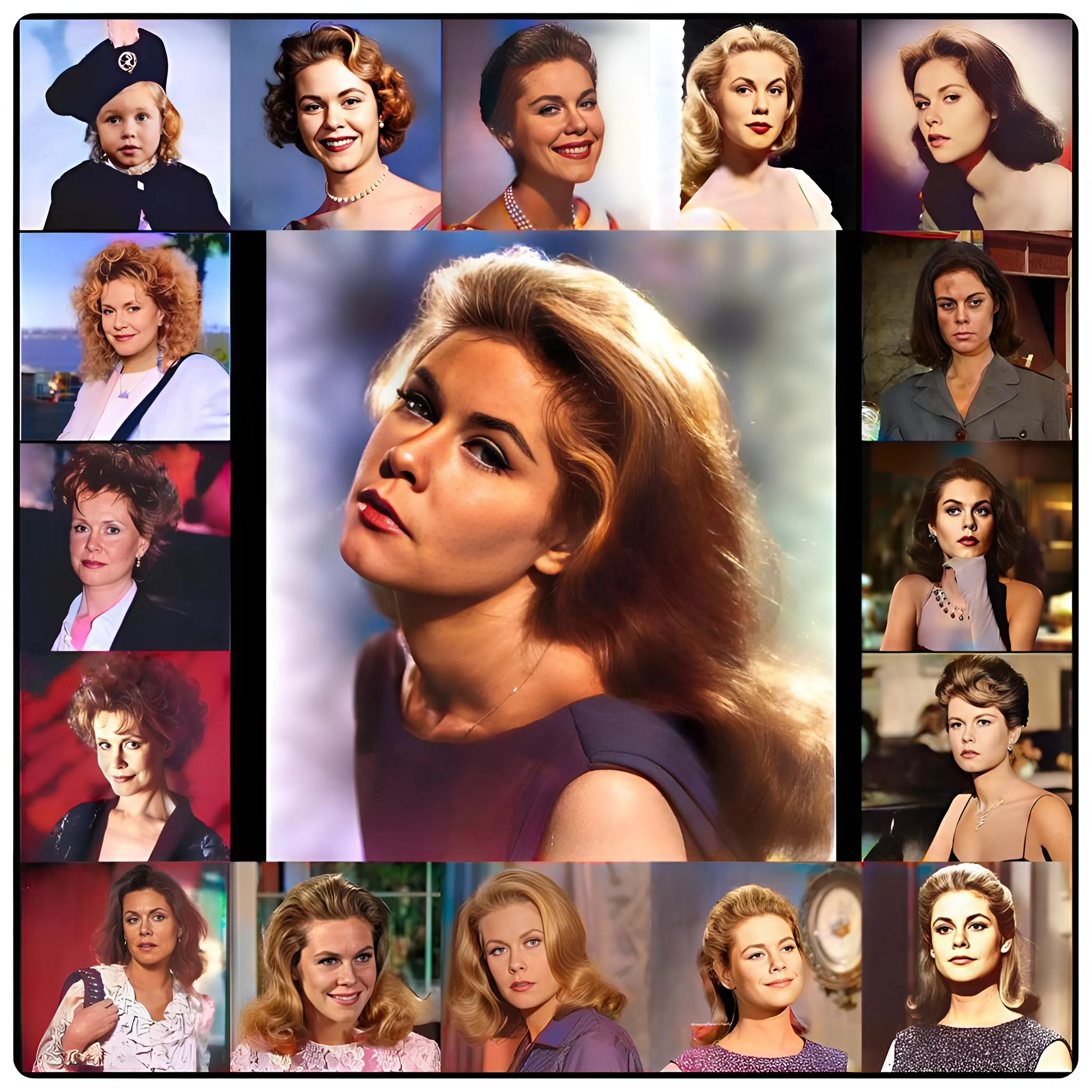Elizabeth Montgomery

Elizabeth Montgomery‘s career in television began in the early 1950s, at a time when the medium was still in its infancy and rapidly evolving. Television was becoming a dominant force in American entertainment, and Montgomery was right there at the beginning of this exciting transformation. Her television debut came in 1951 when she appeared on Robert Montgomery Presents, an anthology series that featured a variety of dramas, where she was able to showcase her acting talent in a range of roles. Her father, Robert Montgomery, was a prominent actor and television host, and his influence in the industry was instrumental in opening doors for Elizabeth. Growing up in such a prominent showbiz family gave her access to opportunities that many aspiring actors could only dream of. Over the next few years, Montgomery’s talent was seen in various TV dramas and comedies. She was a frequent guest on anthology series such as The Ford Theatre Hour and
The Twilight Zone, where she displayed her ability to shift between different genres with ease. Her early work showcased her potential, but it was clear that she was still finding her true identity as an actress. By the late 1950s and early 1960s, she had appeared in several dramatic roles and continued to refine her craft. These formative years were crucial in shaping her career, as she built a reputation for being a versatile actress who could tackle everything from light-hearted comedic roles to more serious, complex characters. However, it was in the mid-1960s that Montgomery’s career took a significant leap forward with her role as Samantha Stephens on the groundbreaking sitcom Bewitched. Premiering in 1964, Bewitched quickly became a cultural phenomenon, known for its witty scripts, charming cast, and the fantasy element of a witch trying to live a normal suburban life. Elizabeth Montgomery’s portrayal of Samantha, a kind-hearted, often flustered witch, was both endearing and hilarious, making her a household name. The show ran for eight seasons, from 1964 to 1972, and during this time, Montgomery became one of the most recognizable stars on television. Her portrayal of Samantha was not just a comic role but also one of tremendous warmth and charm, which endeared her to audiences and cemented her place in TV history. After Bewitched ended, Montgomery continued to thrive in the world of television, branching out into TV movies and miniseries. In these roles, she expanded her range as an actress, often taking on more serious and dramatic parts. Her work in these TV films, such as A Case of Rape (1974) and The Legend of Lizzie Borden (1975), showcased her ability to tackle more complex, intense material, demonstrating a level of depth and maturity that audiences hadn’t fully seen during her Bewitched days. These roles allowed her to break away from her comedic image, proving that she could excel in both lighthearted and dramatic performances.

Elizabeth Montgomery’s early television appearances helped lay the foundation for a career that would define her as one of the most respected actresses in the medium. She was not just a star of a beloved sitcom, but a versatile and enduring talent who left an indelible mark on television, from the early days of her career to her final performances in the 1990s. Her legacy is a testament to her adaptability, and the early experiences she had on television allowed her to shine in a variety of genres, establishing her as one of the great television actresses of her time. Elizabeth Montgomery’s success in television was certainly cemented by her iconic role on Bewitched, but she also had a successful career in TV movies and films, particularly after the end of her long-running sitcom. These projects demonstrated her versatility, as she moved from light comedy to more serious and dramatic roles. Here are some of the most notable films and TV movies where Montgomery earned acclaim: A Case of Rape (1974) – One of Montgomery’s most critically praised performances came in this made-for-TV movie, where she played a woman who is brutally attacked and must deal with the trauma and aftermath of the crime. The role was a departure from her more comedic work on Bewitched, showcasing her ability to take on complex, dramatic material. Her portrayal was praised for its sensitivity and depth, and the film remains one of her standout performances.

The Legend of Lizzie Borden (1975) – In this TV movie, Montgomery took on the role of Lizzie Borden, the infamous figure accused of murdering her parents in the 1890s. The film delved into Borden’s trial and her complex personality. Montgomery’s portrayal was both chilling and empathetic, and she earned strong reviews for her portrayal of the mysterious and controversial figure. The role marked another significant departure from her comedic persona and demonstrated her talent for handling dark, historical drama. The Wake of the Red Witch (1957) – This was one of Montgomery’s early film roles, a period adventure film in which she starred opposite John Wayne. While it wasn’t a huge commercial success, the film was a stepping stone in her transition to a more mature acting career and helped establish her as a leading lady in Hollywood. Though her role in the film was relatively minor, it showcased her growing potential in more traditional film genres. The Third Day (1965) – In this suspenseful TV movie, Montgomery played a key role in a plot about a group of people trapped in a remote area, unraveling mysteries and facing personal dilemmas.
This film helped establish her as a versatile actress, capable of moving from lighthearted comedy to more intense and thrilling roles. The Devil’s Daughter (1973) – A made-for-TV horror movie, this film starred Montgomery as a woman who becomes involved in a mysterious and sinister cult. It was a good example of Montgomery’s ability to branch out into horror and supernatural genres, further showing her range as an actress. Mrs. Sundance (1972) – In this made-for-TV western, Montgomery starred as Etta Place, the lover of the infamous outlaw Butch Cassidy, in a fictionalized account of the events surrounding the Sundance Kid. While the film itself was a TV production, it gave Montgomery the opportunity to play a strong and independent woman, further adding to her diverse body of work. Though Montgomery’s greatest fame came from Bewitched, her roles in these TV movies demonstrated her significant acting range, from playing real-life figures like Lizzie Borden to taking on dramatic and even supernatural roles. These performances helped solidify her as a respected and accomplished actress who was capable of much more than just her comedic role as Samantha Stephens.

